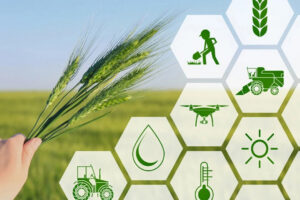
The Indian government is taking steps to combat the challenges posed by climate change to its agricultural sector. According to officials, two new scientific panels have been constituted to develop an advanced countrywide agrarian weather information system and introduce a tech-enabled assessment of crop yields.
These initiatives aim to mitigate the impacts of extreme weather events on agriculture, a critical sector that employs nearly half of India’s workforce and contributes 18% to the country’s GDP.
Combating Challenges with Technology
The committees, anchored at the Mahalanobis National Crop Forecast Centre in New Delhi, will comprise multidisciplinary experts with representation from various states. One committee will focus on establishing a network of high-tech, automatic weather stations. This real-time data will empower farmers and policymakers to prepare for temperature fluctuations, droughts, and extreme rainfall.
The second panel will concentrate on developing a faster system for calculating yield losses due to extreme weather events. This will expedite payouts under the Pradhan Mantri Fasal Bima Yojana, a flagship crop insurance scheme. Scientists are exploring the potential of satellite data, artificial intelligence, and other sophisticated technologies for yield estimation.
Shifting Cultivation Patterns
The urgency for these advancements stems from increasingly erratic weather patterns. Studies by the Indian Council of Agricultural Research (ICAR) reveal rising temperatures, changing rainfall patterns, and melting glaciers pose a significant threat to India’s food security, particularly its rice and wheat crops.
For instance, apple orchards in Himachal Pradesh must relocate to higher altitudes due to insufficient cold weather. Heatwaves have also severely impacted wheat output in recent years. In 2022 and 2023, spikes in temperatures around harvest time significantly reduced wheat yields.
Economic Concerns
Weather disruptions have also hurt India’s federally held wheat stocks, leading to a 16-year low earlier this year. The resulting lower food stocks prompted India to restrict exports of wheat, rice, and onions, impacting farm incomes.
A 2017-18 Economic Survey by the Indian government revealed that extreme weather events and droughts can significantly reduce farmer incomes by up to 14%.
Looking Ahead
These new technological initiatives by the Indian government signal a proactive approach to addressing the challenges of climate change in agriculture. By implementing these solutions and investing in climate-resilient agricultural practices, India can safeguard its food security and ensure the long-term sustainability of its agricultural sector.
